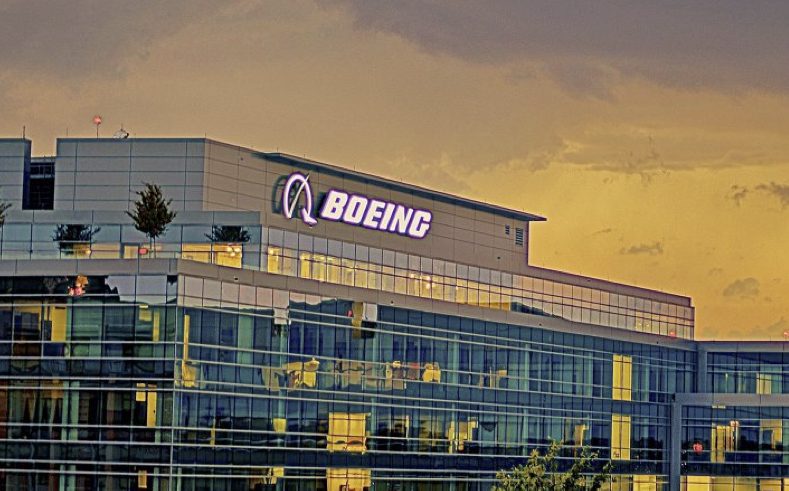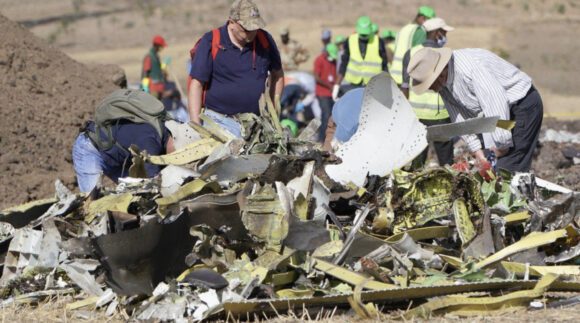
Boeing HQ
Reactions to Saturday’s decision by NASA to use SpaceX to bring home the astronauts who arrived at the International Space Station via the Boeing Starliner is reverberating through the industry. Key stories cite the humiliation experienced by the Boeing workforce and morale issues, the tough decisions new CEO Kelly Ortberg will need to face, and potential actions that range from selling its program to asking how large the loss will end up if Boeing fulfills its commitment to NASA.
The multiplicity of issues facing Boeing across multiple product lines, including the 737 MAX, 787 Dreamliner, 777-X, and even Air Force One, in addition to the new space problems, are causing a drain on cash. Over the first half of the year, Boeing has burned through more than $8 billion and has fully taken down a $10 billion line of credit. Things could become strained in the third quarter as the MAX ramp-up is much slower than planned, the 787 has a new problem requiring FAA inspections, and the 777-X certification program has been halted while Boeing sorts out a component failure problem on the aircraft of an engine mounting system part.
Based on prior write-offs, the next Boeing launch could cost $400 million for a fixed price program that Boeing has already exceeded its budget. How much can Boeing afford to lose on the Starliner program? It will take a lot of intestinal fortitude for Kelly Ortberg to walk away from Boeing’s space ambitions. But that may be precisely what is needed to introduce a new company culture based on performance, rather than standing on prior laurels.
Finding the problem with the Starliner will be even more difficult because the evidence will burn up in the atmosphere during recovery, as the thrusters are contained in a disposable service module. So even if the capsule returns successfully, finding out why the problem occurred won’t be an easy task.
While a new broom sweeps clean, choosing where to sweep remains the key decision. With space a drop in the bucket when compared to the size of Boeing’s aircraft activities, Starliner would not be relevant if the rest of the company was performing well, which, unfortunately, it isn’t.
Employee morale and concern over their employment is another issue that begs for a decision from Boeing on its future in space. If Boeing continues to support NASA, its employees will breathe a sign of relief. But losing to SpaceX and watching the company fail in aircraft program after aircraft program cannot be good for morale. It has become a much more difficult task to list what’s gone right for Boeing than what’s gone wrong over the last few years.
Compounding the problem are stronger indications that Boeing employees will soon go on strike. That would put Boeing further behind in its aircraft build rates, and without the means to maintain or raise those rates, put Boeing in further financial jeopardy. The unions know Boeing is in a position such that a strike is untenable, financially. After many years of labor unrest, with Boeing gaining the upper hand, the tables are set to change.
My colleague Addison Schonland has an interesting post on 737 MAX delivery trends.
Finally, another story takes a look at the legacy of Jack Welch and how GE and Boeing each suffered multiple failures under the shareholder value concept of management. Implementation of those concepts at both GE and Boeing show the net results over time from eroding the value of the company through a lack of re-investment in products and capabilities. Boeing is reeling today from Welch-school managers, from Harry Stonecipher in 2005 all the way to David Calhoun in 2024.
Links to todays key news items follow:
- Boeing workers are on the verge of striking – Jacobin
- Boeing employees humiliated that SpaceX will rescue the astronauts stranded by Starliner – Futurism
- New Boeing CEO faces hard choices after NASA snubs Starliner for SpaceX – Gulf News
- Boeing’s new CEO must now weigh its duty to NASA vs. strained cash reserves – Fortune
- When Boeing’s Starliner comes back empty, it’ll destroy the malfunctioning thrusters making it impossible to study what went wrong – Futurism
- Jack Welch screwed up GE & Boeing, and with the much US climate action – Clean Technica
Views: 1




